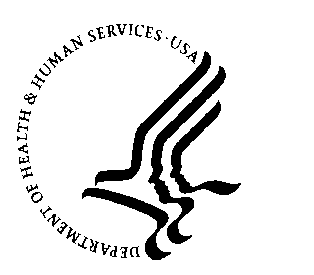Memo Survey of NIH Grant Applicants’ Application and Submission Experiences
ApplicantExperienceMemoMAG mb 4-4-14.doc
Generic Clearance for Satisfaction Surveys of Customers (CSR)
Memo Survey of NIH Grant Applicants’ Application and Submission Experiences
OMB: 0925-0474
Page

DEPARTMENT OF HEALTH AND HUMAN SERVICES National Institutes of Health
 Center
for Scientific Review
Center
for Scientific Review
Office of the Director
6701 Rockledge Dr., Rm. 3016
Bethesda, Maryland 20892-7776
March 26, 2014
To: Office of Management and Budget (OMB)
Through: Reports Clearance Officer, DHHS
Project Clearance Chief, NIH
From: Dr. Mary Ann Noecker Guadagno, Health Scientist Administrator
Office of Planning, Analysis and Evaluation
Center for Scientific Review (CSR)
Subject: Center for Scientific Review (CSR),
Survey of NIH Grant Applicants’ Application and Submission Experiences
(OMB Control Number: 0925-0474 expiration date 10/31/2014)
Circumstances Requiring the Survey: The Center for Scientific Review (CSR) is the portal for NIH grant applications and their review for scientific merit. Our mission is to see that NIH grant applications receive fair, independent, expert, and timely reviews – free from inappropriate influences – so NIH can fund the most promising research. Despite longstanding efforts from the NIH and other entities across the biomedical and behavioral research landscape to increase the number of scientists from underrepresented groups, diversity in biomedicine still falls far short of mirroring the U.S. population. CSR is engaged in a new initiative to closely examine the grant application and peer review process. The aims include the identification of procedures and practices that are most beneficial in accomplishing the Center’s mission as well as identifying any aspects that might make the application and review process vulnerable to bias. To better understand the factors that might account for the differences in funding experiences of new (NI) and early stage investigators (ESI) of underrepresented groups, CSR will conduct a survey and focus groups (in-person extended surveys) through a contract awarded to Social Solutions International, Inc. (Social Solutions) under the OMB control number 0925-0474, with expiration date 10/31/2014.
Purposes and Uses of the Data Collection: The survey will assess factors that may hinder investigators in producing a competitive grant application, including those at the investigator, institution, and system process level. The focus groups will examine experiences with grant application preparation, submission, and feedback, and identify unique challenges faced by African American and other minority NI and ESI in applying for and receiving NIH research funding. The overall objective is to identify potentially modifiable factors that contribute uniquely to the challenges that NI and ESI of underrepresented groups face when applying for research grant funding from the NIH.
Participation in the survey and focus groups will be voluntary. Identifiable information will be used by Social Solutions to obtain consent for participation and remuneration upon completion. A unique identifier will be assigned to each completed survey for reporting purposes to CSR. Participants will be assured that neither their participation/non-participation nor any responses in the survey or focus groups will be linked to their identity and will not have any effect on support or services at CSR or NIH.
Estimates of Burden Hours and Costs
A.12 - 1 ESTIMATES OF HOUR BURDEN |
||||
Type of Form |
Number of Respondents |
Frequency of Response |
Average Time per Response |
Annual Hour Burden |
Online Survey |
2,850 |
1 |
30/60 |
1,425 |
In-Person Extended Survey (Focus Group Guide) |
74 |
1 |
90/60 |
111 |
Totals |
2,924 |
|
|
1,536 |
Justification for Incentives: Incentives will primarily serve to compensate participants for their time, and the energy and effort it requires to complete the survey. The survey will take approximately 45 minutes. This activity entails efforts outside of participants' typical job functions. The survey must be completed online, with an appropriate computer setup, electricity, and Internet connection. In order to serve CSR’s mission improve data quality, three primary issues become apparent regarding survey data: response rate, representativeness, and item-response (i.e. the rate of completed questions). Research by Olson, Abelson, and Olsen (2013) demonstrated that the provision of financial incentives on a questionnaire not only increased the response rate and improved the representativeness of the sample taking the survey, but also reduced item non-response. The success of including an incentive for the survey in this study could hinge on a balanced connection between the size of an unconditional gift and the effort needed to complete the relatively lengthy questionnaire and the provision of an immediate reward as opposed an internal future prize drawn up by survey researchers. For this reason, the incentive value for the survey has been set at $25.
There are no additional costs to the respondent other than their time.
References
Olsen, F., Abelsen, B., & Olsen, J. A. (2012). Improving response rate and quality of survey data with a scratch lottery ticket incentive. BMC Medical Research Methodology, 12, 52-58.
| File Type | application/msword |
| Author | ME Mason |
| Last Modified By | Currie, Mikia (NIH/OD) [E] |
| File Modified | 2014-04-10 |
| File Created | 2014-04-10 |
© 2026 OMB.report | Privacy Policy